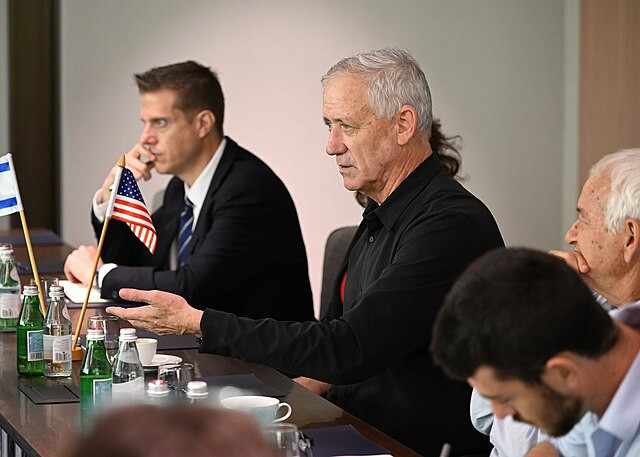Israeli politics took a dramatic turn this weekend as Benny Gantz, a key member of the Israeli war cabinet, announced his resignation from Prime Minister Benjamin Netanyahu's government. This move strikes a significant blow to Netanyahu, who has been celebrating the recent rescue of hostages held in Gaza.
Gantz, seen as Netanyahu's main political rival, announced his decision in a televised statement on Sunday, describing it as "complex and painful." He accused Netanyahu of hindering Israel's progress towards a decisive victory in Gaza, stating, "Netanyahu prevents us from moving forward to a real victory [in Gaza]."
The resignation of Gantz comes eight months after the October 7 Hamas attacks, with Gantz citing a change in the country's situation and decision-making dynamics as the impetus for his departure. He criticized Netanyahu for prioritizing personal political considerations over a post-war strategy for Gaza, urging the Prime Minister to set an election date. "I call on Netanyahu: set an agreed election date. Do not let our people be torn apart," Gantz implored.
Gantz's resignation follows his ultimatum last month for Netanyahu to present a new plan for the war against Hamas by June 8. Although he had planned to resign on Saturday, he postponed the announcement following the news of Israeli forces rescuing four hostages in Gaza, an operation that resulted in significant Palestinian casualties.
Despite Netanyahu's appeals for Gantz to remain in the emergency government, emphasizing the need for unity, Gantz stood firm in his decision. "Benny, this is not the time to abandon the campaign - this is the time to join forces," Netanyahu urged in a post on X.
Netanyahu assured that his government would continue its efforts until all hostages are released and Hamas is eliminated, reaffirming his open-door policy for any party willing to share in the war effort. However, Gantz's departure leaves the war cabinet with only Netanyahu's Likud party represented, alongside Defense Minister Yoav Gallant.
The resignation of Gantz, who has often surpassed Netanyahu in popularity polls, does not immediately endanger Netanyahu's government, which retains a majority in the 120-member Knesset. However, it diminishes the war cabinet's political diversity and may increase reliance on ultra-nationalist factions, potentially straining relations with Western allies and escalating domestic pressures.
As calls grow from Israel's Western allies and families of hostages to end the conflict and secure the captives' release, the absence of a clear post-war strategy remains a critical issue. U.S. President Joe Biden has repeatedly urged Netanyahu to present a tangible plan for Gaza's future, reflecting international concerns over the prolonged conflict.
Gantz's departure signals a shift in the Israeli political landscape. Alon Pinkas, a former Israeli diplomat, noted that Gantz's initial decision to join the government was to balance the influence of the far right and prevent reckless decision-making. However, with the war dragging on and unresolved issues persisting, Gantz may have recognized the diminishing returns of staying in the cabinet.
Polls consistently show Gantz as a formidable rival to Netanyahu. A survey published by the Israeli Maariv newspaper indicated 42% support for Gantz compared to 34% for Netanyahu. Gantz has called for early elections, suggesting that Israeli society needs to renew its contract with its leadership.






